Daily Vocabulary Words: List of Daily Used Words in Leading International Newspapers
Hi there. Welcome to this special section @ Wordpandit.
Our endeavour here is very simple: to highlight important daily vocabulary words, which you would come across in leading newspapers in the country. We have included the following newspapers in our selection:
• The New York Times
• The Washington Post
• Scientific American
• BBC
• The Guardian
• Psychology Today
• Wall Street Journal
• The Economist
We are putting in extensive work for developing your vocabulary. All you have got to do is be regular with this section and check out this post on a daily basis. This is your repository of words that are commonly used and essentially, we are posting a list of daily used words. Hence, this has significant practical application as it teaches you words that are used commonly in leading publications mentioned above.
Visit the website daily to learn words from leading international newspapers.
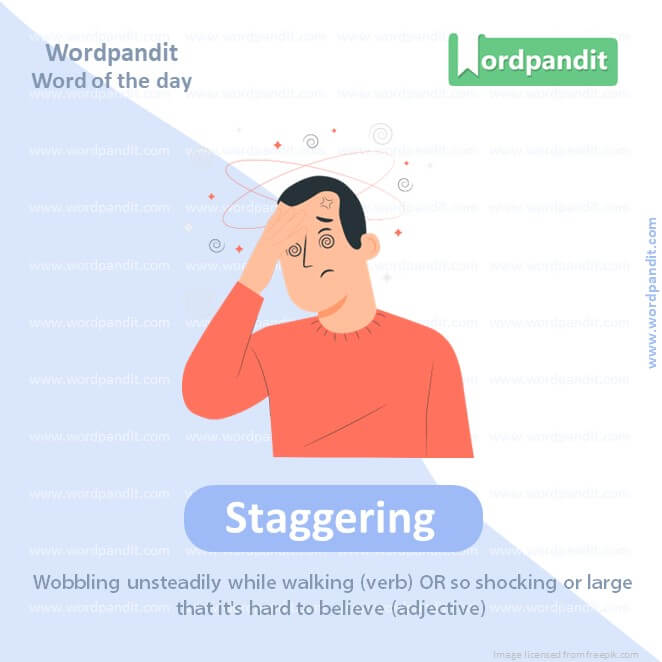
WORD-1: Staggering
CONTEXT: New research from the property tax consultancy Cornerstone Tax finds that a staggering 19% of renters have had to move at least five times in five years through no fault of their own.
SOURCE: New York Times
EXPLANATORY PARAGRAPH: Imagine you’re walking, but you’re so sleepy that you can’t walk straight and keep wobbling from side to side. That’s kind of like “staggering”. Sometimes, people also use this word to say something is really, really big or surprising.
MEANING: Wobbling unsteadily while walking (verb) OR so shocking or large that it’s hard to believe (adjective).
PRONUNCIATION: STAG-er-ing
SYNONYMS: Lurching, Tottering, Astounding, Shocking, Surprising, Wobbling, Incredible.
USAGE EXAMPLES:
1. After the long race, the runner was staggering towards the finish line.
2. The cost of the diamond was a staggering amount.
3. She gave a staggering performance in the play.
4. I saw a man staggering home late at night.
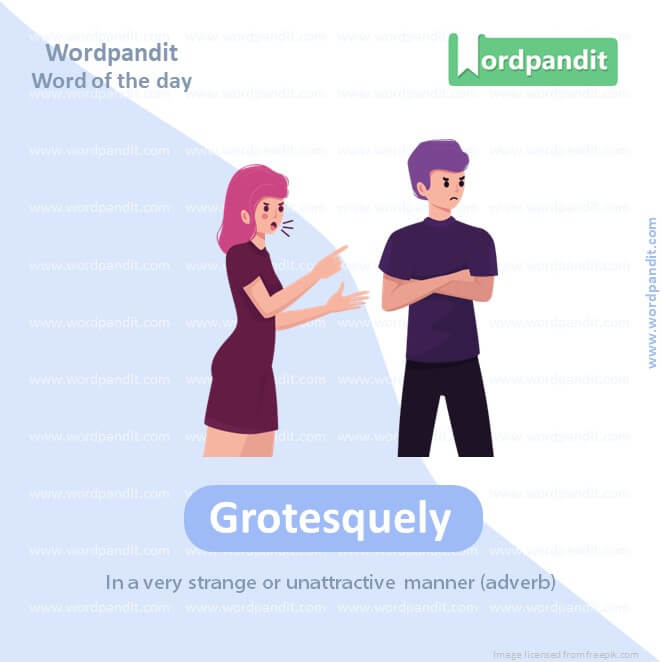
WORD-2: Grotesquely
CONTEXT: Grotesquely, some councils meanwhile report unscrupulous private landlords opting to kick their tenants out
SOURCE: Washington Post
EXPLANATORY PARAGRAPH: Think about a silly face you might make, where your tongue sticks out, and eyes go wide. That face might look weird or funny, right? “Grotesquely” is a word that describes something that looks really strange or kind of scary.
MEANING: In a very strange or unattractive manner (adverb).
PRONUNCIATION: grow-TESK-lee
SYNONYMS: Bizarrely, Weirdly, Oddly, Frighteningly, Horridly, Outlandishly, Ugly.
USAGE EXAMPLES:
1. The pumpkin was grotesquely carved.
2. The villain in the movie had a grotesquely twisted smile.
3. The sculpture was grotesquely shaped.
4. He laughed grotesquely at the joke.
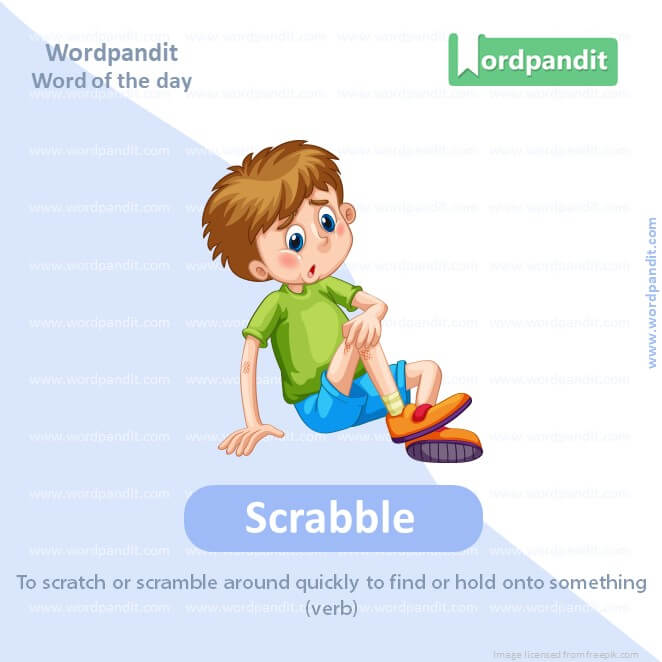
WORD-3: Scrabble
CONTEXT: even at the top there’s frustration, with comfortably off homeowners watching in dismay as their student offspring scrabble for somewhere to live at university.
SOURCE: New York Times
EXPLANATORY PARAGRAPH: Imagine you dropped your favorite toy under your bed and you’re trying to grab it quickly with your hands. That hurried searching and grabbing is like “scrabbling”. There’s also a game called Scrabble where you make words with letter tiles!
MEANING: To scratch or scramble around quickly to find or hold onto something (verb).
PRONUNCIATION: SKRAB-uhl
SYNONYMS: Scramble, Claw, Grasp, Grope, Flounder, Search, Clamber.
USAGE EXAMPLES:
1. She scrabbled in her purse to find her keys.
2. The cat scrabbled at the door to be let in.
3. Kids scrabbled for candies that fell on the ground.
4. He scrabbled up the muddy hill.
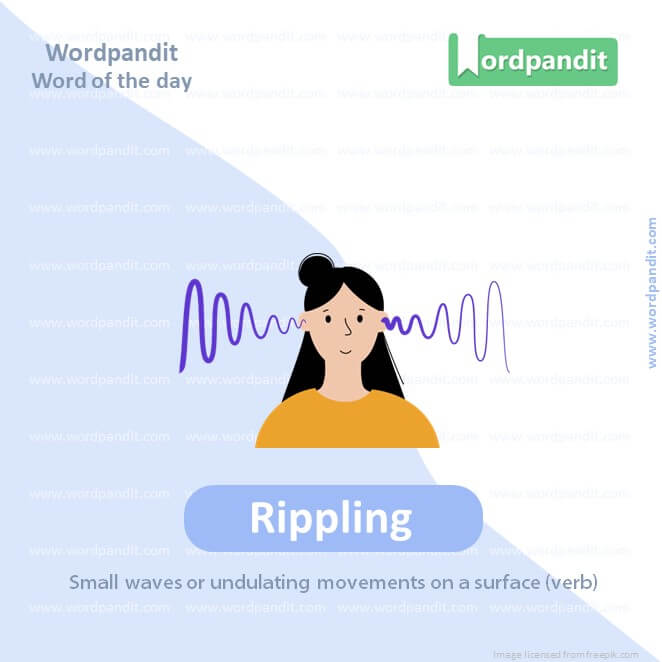
WORD-4: Rippling
CONTEXT: that doesn’t work either for renters or, increasingly, for landlords, with consequences rippling beyond both.
SOURCE: Washington Post
EXPLANATORY PARAGRAPH: Imagine you throw a stone in a pond. The water moves in little waves, right? That movement is called “rippling”. It’s like how your blanket looks when it has little waves in it.
MEANING: Small waves or undulating movements on a surface (verb).
PRONUNCIATION: RIP-ling
SYNONYMS: Waving, Fluttering, Fluctuating, Undulating, Wobbling, Pulsing, Rolling.
USAGE EXAMPLES:
1. The wind caused rippling in the water.
2. Her laughter sent a rippling effect through the crowd.
3. The flags were rippling in the breeze.
4. The music set a rippling mood in the room.
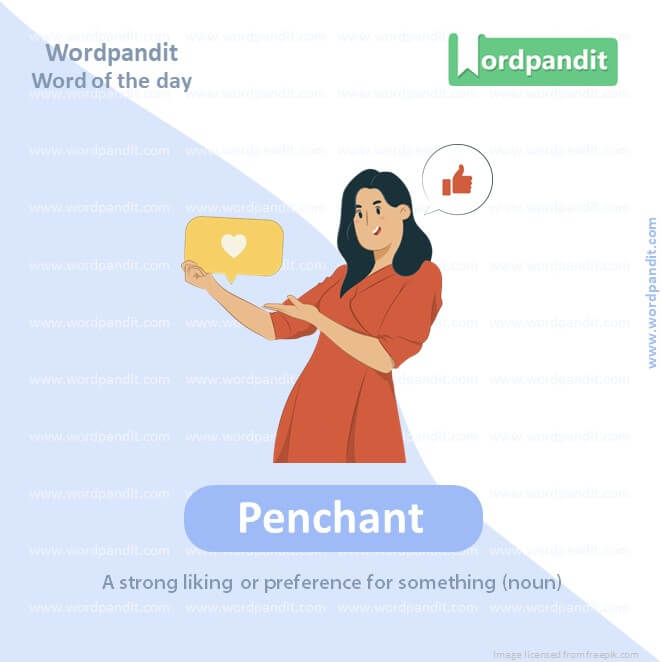
WORD-5: Penchant
CONTEXT: at least, people pay attention to Wagenknecht because she’s long had a penchant for radical positions.
SOURCE: Guardian
EXPLANATORY PARAGRAPH: Everyone has something they really, really like. Like how you might love ice cream or playing with toy cars. That strong liking for something is called a “penchant”.
MEANING: A strong liking or preference for something (noun).
PRONUNCIATION: PEN-chant
SYNONYMS: Fondness, Preference, Inclination, Taste, Affinity, Leaning, Predilection.
USAGE EXAMPLES:
1. He has a penchant for classical music.
2. Maria has a penchant for collecting stamps.
3. Her penchant for spicy food is well known.
4. The artist had a penchant for bright colors.
WORD-6: Combatants
CONTEXT: It means downplaying distinctions between combatants and civilians
SOURCE: Washington Post
EXPLANATORY PARAGRAPH: Imagine two superheroes fighting against each other. Both of them are called “combatants” because they are in the fight. It’s like when you play a game and there are two teams playing against each other; both teams can be called combatants.
MEANING: People or groups who are actively fighting, especially in a war or battle (noun).
PRONUNCIATION: kuhm-BAT-uhnts
SYNONYMS: Fighters, Warriors, Soldiers, Belligerents, Opponents, Contenders, Challengers.
USAGE EXAMPLES:
1. The two combatants faced off in the boxing ring.
2. During the war, combatants from both sides suffered losses.
3. The combatants were prepared for the upcoming duel.
4. The treaty was signed by the leading combatants.
WORD-7: Paradoxically
CONTEXT: paradoxically, it exposes an unwillingness to take terrorists seriously, reducing them to “crazy” or “irrational” adversaries. They usually aren’t.
SOURCE: Guardian
EXPLANATORY PARAGRAPH: Sometimes, things can seem a bit funny because they are the opposite of what you’d expect. Like if it’s a really hot day but you feel cold, that’s surprising, right? When something is like that, we say it’s “paradoxically” happening.
MEANING: In a way that seems opposite to what one would expect and is therefore surprising (adverb).
PRONUNCIATION: puh-rah-DOX-i-kuh-lee
SYNONYMS: Contradictorily, Unexpectedly, Surprisingly, Confusingly, Illogically, Bafflingly, Incongruously.
USAGE EXAMPLES:
1. Paradoxically, the more he learned, the more he realized he didn’t know.
2. The medicine made him feel better, but paradoxically, it also caused fatigue.
3. Paradoxically, the quietest moments were the most intense.
4. She was crying, but paradoxically, she said she was happy.
WORD-8: Consciousness
CONTEXT: the broad Hebrew term for security that so pervades Israel’s consciousness, only when the Palestinians have sovereignty over their lives.
SOURCE: Guardian
EXPLANATORY PARAGRAPH: You know how you can think, feel, and know what’s happening around you? That’s because you have “consciousness”. It’s like being awake and aware of things.
MEANING: The state of being awake and aware of one’s surroundings, thoughts, and feelings (noun).
PRONUNCIATION: KON-shus-ness
SYNONYMS: Awareness, Alertness, Wakefulness, Sensibility, Perception, Cognizance, Realization.
USAGE EXAMPLES:
1. He lost consciousness after hitting his head.
2. Meditation can expand your consciousness.
3. The book explores the nature of human consciousness.
4. She drifted in and out of consciousness.
WORD-9: Snuffed
CONTEXT: having been caught in the maelstrom of chaos only to see his life snuffed out at the age of just 54.
SOURCE: Scientific American
EXPLANATORY PARAGRAPH: Imagine you have a candle and you quickly blow it out. That action of putting out the candle’s flame is called “snuffing”. It’s like when you end something suddenly.
MEANING: Put out or extinguish (like a flame) (verb).
PRONUNCIATION: SNUFFED
SYNONYMS: Extinguish, Quench, Douse, Put out, Smother, Stamp out, Blanket.
USAGE EXAMPLES:
1. She snuffed out the candles before leaving the room.
2. The rain snuffed the campfire.
3. The wind nearly snuffed out the lantern’s flame.
4. His dreams were snuffed out by an unfortunate accident.
WORD-10: Conspiratorial
CONTEXT: Her economic plans are sprinkled with conspiratorial references to foreign monopolies
SOURCE: New York Times
EXPLANATORY PARAGRAPH: Imagine you and your friend are planning a surprise party and you’re whispering and giggling about it. That secret, sneaky feeling you have is “conspiratorial”, like you both share a fun secret.
MEANING: Relating to or suggesting a secret plan or shared understanding (adjective).
PRONUNCIATION: kuhn-spih-ruh-TOR-ee-ul
SYNONYMS: Secretive, Sly, Clandestine, Covert, Furtive, Underhand, Stealthy.
USAGE EXAMPLES:
1. They exchanged a conspiratorial glance.
2. With a conspiratorial whisper, she told him the plan.
3. The kids had a conspiratorial meeting about their next prank.
4. The two shared a conspiratorial laugh about the incident.
Vocabulary Pronunciation
The dance of language learning comprises two inseparable partners: vocabulary and pronunciation. The rhythm of this dance is best enjoyed when both partners are in sync. Essentially, mastering ‘vocabulary pronunciation’ is key to expressing and understanding a language effectively. However, what is the ideal approach to learn ‘vocabulary pronunciation’?
Firstly, the process of learning ‘vocabulary pronunciation’ isn’t a sprint. Rather, it’s a marathon where consistency is vital. A gradual and steady pace of learning new words and their pronunciation offers enough time to effectively practice and commit them to memory.
Secondly, to master ‘vocabulary pronunciation’, go beyond written text. Dwell in the world of audible language, such as documentaries, podcasts, music, or language-learning apps that provide pronunciation guides. These memorable auditory experiences aid in refining your ‘vocabulary pronunciation’ and offer a glimpse into the authentic sounds of the language.
Another beneficial strategy for learning ‘vocabulary pronunciation’ involves the use of phonetic transcriptions. They offer systematic approaches to understanding the sound system of a language, thereby improving pronunciation.
Most importantly, do not shy away from practicing your ‘vocabulary pronunciation’. Be it in a language exchange meeting, a conversation with a native speaker, or even a self-recording session, active verbalization massively boosts your pronunciation prowess.
Lastly, always remember to train your ears as much as you train your tongue. Listening carefully to native speakers helps you capture the subtleties of ‘vocabulary pronunciation’, contributing to better delivery when you speak.
In conclusion, mastering ‘vocabulary pronunciation’ is not an overnight journey. It’s a process of intentional practice, sustained listening, conscientious reflection and active usage. As you chart this course with diligence and patience, you will witness your ‘vocabulary pronunciation’ skills blossom, leading you to communicate with greater fluency and confidence.











